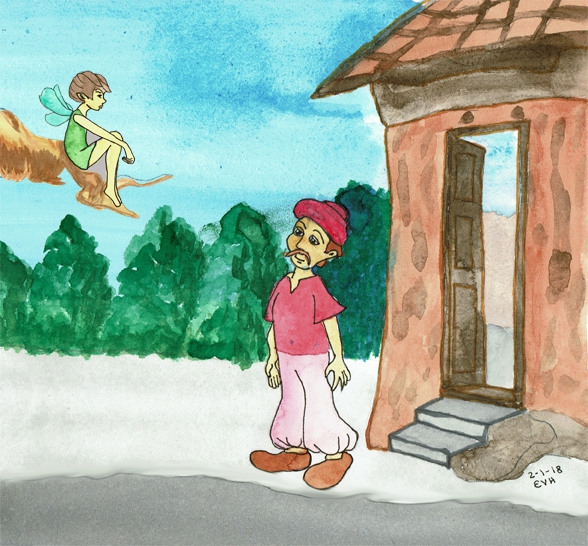
Jataka 19
Āyācitabhatta Jātaka
On Offerings Given
as told by Eric Van Horn
originally translated by Robert Chalmers, B.A., of Oriel College, Oxford University
originally edited by Professor Edward Byles Cowell, Cambridge University
This is another warning tale about the dangers of killing animals. This one focuses on the consequences in the next life. Buddhist lore sometimes holds that fishermen are reborn as fish, and butchers are reborn as the animals they killed (!).
“Consider your next life.” This story was told by the Master while at Jetavana. It is about offering a sacrifice under vow to gods. Tradition says that in those days, when people went on a journey on business, they would sacrifice animals and offer them to the gods. Then they set off on their way after vowing, “If we come safely back with a profit, we will give you another sacrifice.” And when they did come safely back with a profit, they believed that this was due to gods. This made them sacrifice many more animals in order to be released from their vow.
When the monks became aware of this, they asked the Blessed One, “Can there be any good in this, sir?”
The Blessed One told this story of the past.
Once upon a time in the Kāsi country, there was a fairy who lived in a banyan tree and stood at the entrance to a little village. A rich landowner from the village promised a sacrifice to the fairy if his business was profitable. Later, when this turned out to be so, he killed many animals and went to the tree to be released from his vow. But the tree fairy, standing in the fork of its tree, repeated this stanza:
Consider your life hereafter when you seek
“Release,” for this release is strict bondage.
This is not how the wise and good release themselves,
For this, the fool’s release ends in bondage.

Figure: The Rich Man and the Tree Fairy
After that people refrained from taking life, and by walking in righteousness, they lived in the city of the Devas (gods) after death.
His lesson ended, the Master showed the connection and identified the birth by saying, “In those days I was the tree fairy.”
